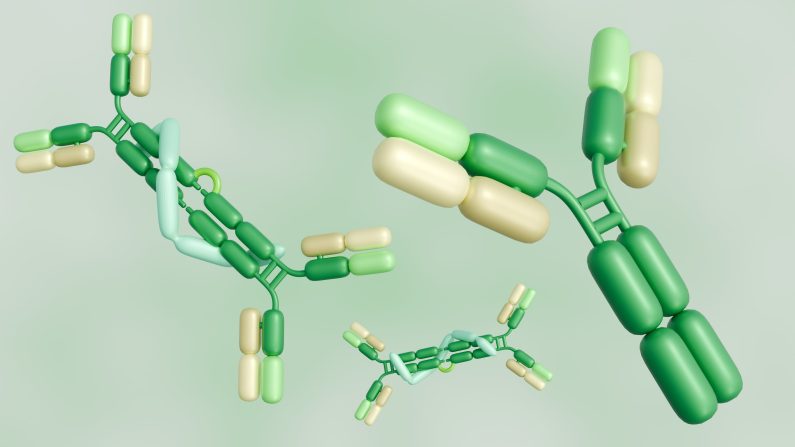Low SIgA and Autoimmune Disease: What It Means and How to Fix It
Category: Functional Medicine and Nutrition, Immune Health
Functional Medicine and Nutrition Practitioner Sunshine Coast
Discover How Low SIgA May Be Linked to Autoimmune Disease and Learn Holistic Strategies to Restore Immune Balance with Expert Functional Medicine and Nutrition Practitioner Shelley Cavezza, PhD
Introduction: Understanding SIgA and Immune Function
Secretory Immunoglobulin A (SIgA) is a critical antibody in mucosal secretions—saliva, tears and the gut lining. It defends against pathogens and helps maintain a balanced immune response. When SIgA is low, your first line of defence weakens, increasing susceptibility to mucosal infections and is associated with a higher prevalence of some autoimmune diseases. Here, we explore why low SIgA matters and how to restore immune balance.
What Is SIgA and Why Is It Important?
- The Role of SIgA:
SIgA acts as a protective barrier on mucosal surfaces, preventing toxins and pathogens from entering your body while modulating immune activity and supporting a healthy microbiome. - Consequences of Low SIgA:
A deficiency compromises the mucosal barrier, increasing susceptibility to infections, and may contribute to chronic inflammation and autoimmune reactions.
The Connection Between Low SIgA and Autoimmune Disease
Emerging research indicates that low SIgA is linked to higher rates of autoimmunity. Low SIgA is associated with higher rates of infection and some autoimmune diseases; it may contribute to immune dysregulation via impaired barrier defence and dysbiosis.
- Increased Mucosal Permeability
Without adequate SIgA, the gut barrier may become “leaky,” allowing antigens and toxins into the bloodstream. This can provoke an immune response that, over time, may misdirect against your own tissues. - Immune Dysregulation
SIgA helps regulate immune reactions. When levels drop, the immune system may overreact to harmless substances, fostering chronic inflammation and autoimmune activation. - Altered Microbiome
A healthy microbiome relies on SIgA to maintain balance. Low SIgA can lead to dysbiosis, which is linked to various autoimmune disorders. Causality remains under investigation.
Functional Medicine and Nutrition Strategies to Fix Low SIgA
Addressing low SIgA requires a holistic, root-cause approach:
- Nutritional Optimisation
- Anti-Inflammatory Diet: Emphasise whole, unprocessed foods rich in antioxidants and omega-3 fatty acids—plenty of fruit, vegetables, lean protein and healthy fats—to reduce systemic inflammation.
- Gut-Healing Foods: Include fermented foods (sauerkraut, kefir) and prebiotic-rich foods (garlic, onions, asparagus) to nurture the gut lining and support SIgA production. A clinical trial has shown that fermented foods increased microbiome diversity and lowered inflammatory markers.
- Eliminate Triggers: Remove refined sugars, processed foods, gluten and dairy if you suspect sensitivities.
- Gut Health & Microbiome Support
- Probiotics: Choose targeted strains (Lactobacillus, Bifidobacterium) known to enhance SIgA and strengthen the gut barrier. Adult SIgA responses are variable.
- Prebiotic Supplements: Consider prebiotic fibres to fuel beneficial bacteria and promote microbiome diversity.
- Lifestyle Modifications
- Stress Management: Chronic stress impairs SIgA. Practise mindfulness, meditation or gentle yoga to lower cortisol and support immune balance.
- Sleep Optimisation: Prioritise quality sleep to allow immune restoration and SIgA production.
- Regular Physical Activity: Moderate exercise boosts immunity, but avoid overtraining, which can further suppress SIgA.
- Targeted Supplementation
- Vitamin D: Essential for immune regulation – supplement if tests show deficiency/insufficiency after testing your levels.
- Zinc: Crucial for immune function and SIgA synthesis – consider supplementation if dietary intake is low.
- Adaptogenic Herbs: Ashwagandha and similar herbs can help modulate the stress response and support immune resilience.
A Functional Medicine and Nutrition Perspective
Functional medicine and nutrition look beyond symptoms to address underlying imbalances. By combining nutritional strategies, targeted supplementation and lifestyle modifications, you can restore SIgA, rebalance your immune system and potentially alleviate autoimmune activity.
Explore Your Options with a Discovery Call
Book an exploratory Discovery Call with Shelley Cavezza, PhD—not a consultation—to see whether a tailored functional medicine and nutrition programme could help restore your SIgA and immune balance.
Empower Your Health Today
Contact Functional Medicine and Nutrition Practitioner Shelley Cavezza, PhD, on the Sunshine Coast and take the first step towards a stronger immune system and improved wellbeing.
Additional Resources
- Blog Posts:
- Services Offered:
- Comprehensive Functional Medicine and Nutrition Programmes
- Personalised Nutrition and Lifestyle Coaching
- Advanced Gut Health and Immune Function Testing
Contact Information
- Website: www.drshelleycavezza.com.au
- Phone: +61 419 821 666
- Email: info@drshelleycavezza.com.au
Disclaimer: This information is not intended to diagnose, treat, cure or prevent any disease. Please consult a healthcare professional before starting any new health programme.


